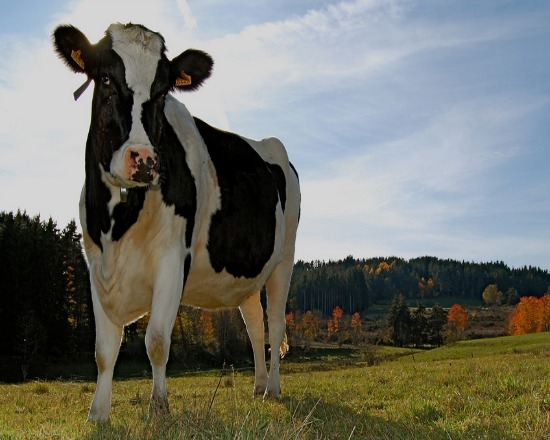Caroline Lange: Former Bowdoin Student Grows Big Idea for Brunswick Market — Portland Press Herald
A friend (who hails from Maine) shared this story with me this week, about Maina Handmaker (giving the TEDxDirigo talk above), a Bowdoin alum who saw potential in a couple of old freight sheds; she conceived a plan to turn them into a permanent farmers market in downtown Brunswick. After graduating from Bowdoin and putting in time as a farmer, Handmaker is leading the charge on the project. It’s easy to admire Handmaker’s willingness to take on all of the moving pieces involved in acquiring and restoring the sheds (which were at threat of being demolished), not to mention negotiating with farmers and planning for the future market.
Amy Zavatto: Keeping Her Passport Handy: Restaurant Review: Annisa in Grenwich Village — New York Times
I was a day late and two dollars and fifty cents short getting around to the Dining Section this week, but when I did I was super excited to see Pete Wells’ three-star review of Annisa, happily elevated from the two it received from Grimes in 2000, and then again by Sifton in 2010. Anita Lo is one of my favorite chefs for a lot of reasons – first and foremost, her cooking. I had a pretty memorable birthday meal at Annisa several years back and, okay, I know she does a whole lot more than these iconic little things, but damn, if those foie gras soup dumplings do not haunt the shadows of my hungry mind. But as you’ll see in the Wells write-up (if you didn’t already get to it), there’s just such a complex layering of, as he put it, border-hopping flavors that it’s a pretty great culinary journey to treat yourself to. Also, for what it’s worth: I’ve interviewed Lo and found her to be such an interesting, lovely person, I wish she were my neighbor. Although, actually, that might not be far off – Lo decompresses in my old stomping grounds of eastern LI as per this story Lindsay Morris did on her in Edible East End last year. Check it out.
Marissa Finn: Gabila’s: Replacement Knish Machine Has Landed – Newsday
The fact that one factory fire on Long Island can lead to a nationwide knish shortage is kind of ridiculous. When a single producer supplies the whole country, any issue can take the product off the shelves. Knishes aren’t a staple food – well, for most of us — but this kind of thing happens all the time. When the corn drought of 2012 led to a bacon shortage, for example, the world went nuts. Despite my anger at the food system as a whole, I’m pretty damn happy that Gabila’s is back in action and that knishes are getting so much media love.
Eileen M. Duffy: Why Do We Eat Cereal For Breakfast? And Other Questions About American Meals Answered — Smithsonian
The Smithsonian interviews Abigail Carroll about her book, Three Squares: The Invention of the American Meal. It’s an historian’s look at the way Americans eat, an evolution accelerated by the Industrial Revolution and a breaking away from the Victorian emphasis on table manners and rituals. Mr. Post and Mr. Kellog have a lot to do it, but so does America’s love for eating on the run. There’s a reason hot dogs are our national food.
Gabrielle Langholtz: Just Say No — New York Times
I spent many years under the delusion that my friends and I could eat our way to our better food system. That if we vote with our forks, eventually small, ecological farmers would flourish and McDonalds’ empire would crumble to dust. Then I woke up to the Farm Bill. Those billions a year in taxpayer dollars shape the way just about every bite of food is grown in America. Congress sent the latest Farm Bill to Obama’s desk this week. And here Mark Bittman explains why he shouldn’t sign it.
Lauren Wilson: What Does “Artisanal” Mean, Anyway? — Civil Eats
I love eating in Brooklyn for many reasons, and a lot of them are housed in the Pfizer building. It’s a veritable small food and drink business incubator that is home some of NYC’s most innovative local brands. As some of these “artisanal” businesses begin to take off, I think this article does a fair job of articulating what it takes for many many of them to stick to their roots while still embracing their scaling success.
Featured image: Flickr/Adrien_Dubuisson



